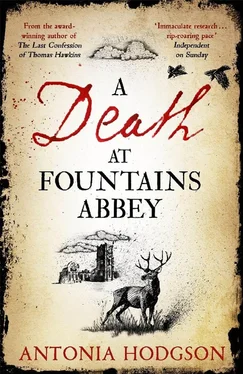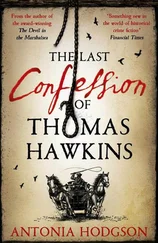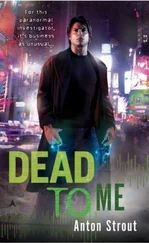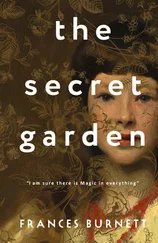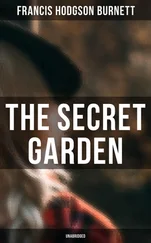‘Must have been a sneaking little devil,’ she said. ‘There’s always someone out in the yard. A woman, I reckon. She could tuck them under her gown.’ She pushed a clove into a shallot, and then another.
‘Who do you think wrote the notes?’
‘The Gills, most likely.’
‘The poachers?’
‘You might call them that. There’s been Gills hunting out on Kirkby moors long as anyone can remember. But his honour bought the moor, so… now they’re poachers.’
‘Bad business with the deer.’
‘Died quickly, by the looks of it,’ she shrugged, unmoved. She was a cook, after all. ‘But now – here’s a thing made me wonder. I can’t see Jeb or Annie Gill wasting good venison like that. Not in their nature.’
This was a very good point. Surely a poacher would never squander such valuable meat, just for dramatic effect. ‘Are they capable of murder, d’you think? Is that in their nature? Would they burn the house down for revenge?’
Mrs Mason dropped her shallot in alarm. ‘Bloody hell, I hope not. Excuse my language, sir.’
I asked Mrs Mason for directions to my quarters. She insisted on calling Bagby, who’d been napping next door in the servants’ hall. He stumbled into the kitchen, rubbing his eyes and grumbling loudly until he saw me sitting at the table, finishing my bowl of coffee. Hiding his scowl behind the thinnest screen of deference, he led me upstairs, back straight, mouth twisted shut. I paused upon the landing to admire the tapestry. In truth it was not a good piece, but it depicted a horse with a splendid mane, rearing up on its hind legs. Horses, I was beginning to understand, were granted an almost divine status at Studley. Even poorly stitched ones.
Bagby made an impatient little noise in the back of his throat. He didn’t like me. Why should he? He was not the first servant who resented his low position. Perhaps if I told him I had been tortured in a debtors’ prison? Beaten and robbed? Hanged at Tyburn? Ah, but above all that, I was a gentleman – nothing luckier than that.
We turned right on the landing and passed into the east wing, floorboards creaking under our feet. The main body of the house was in reasonable order but this side appeared to be listing, with great cracks in the plaster. There was a smell of damp, and the faded wallpaper was blistered and peeling away, as if the walls were suffering from some awkward rash.
We took a step up into a dark and oddly cramped corridor, scarce wide enough to scrape through in single file. The floor here was uneven, sloping sharply to the right. Low beams ran across the ceiling, as if designed to cause injury. A helpful servant would have said, ‘Mind your head, sir.’ Bagby remained silent, walking ahead with near-satirical dignity, as if he were escorting me through the Palace of Versailles.
We had reached the back of the house, though with all the twists and turns we’d performed, I did not realise this yet. My apartment was tucked away on a mezzanino below the attic rooms. Bagby opened the door with a flourish and gestured for me to enter. A glint in his eye made me pause on the threshold, foot hanging in mid-air. There were three steps down into the room. If I hadn’t paused I would have missed them, and stumbled head first to the floor.
I stepped down into the main bedchamber, fighting my disappointment. The bed itself looked inviting, with a scarlet canopy and matching counterpane. But the room had an oppressive feel, even with the fire flickering in the hearth and fresh candles in the sconces. The low ceilings were brought even lower by a series of dark beams, and the mahogany wall panels added to the intense gloom. There was at least a tall double window, but the latticed glass allowed through only a thin light, and was blocked further by a great oak tree growing directly outside.
If Kitty were here… If Kitty were here it would have felt warm and bright enough. She would have complained loudly about the tree, and the dark panelling, and the fusty smell. Then she would have kicked Bagby from the room and pulled me by my breeches to the bed. She would have kissed me, guided my hand under her gown, my fingers trailing up the heavenly silk of her thighs and-
‘Will that be all?’ Bagby asked.
I glanced at my luggage. I could insist that he unpack my belongings, but he was a sour addition to the room. The sooner he left the better. I waved him out, crossing to the window. Raindrops were snaking their way down the glass. I pressed my forehead to the pane. My head was pounding from the wine, and my journey, and something deeper.
Kitty. How could I have lost her, and so soon? If I wrote to her now, would she come?
I sighed my frustration out on to the glass. The letter would take at least three days to reach her. Even if she set out the next day, she was more than a week away. My luggage lay a few feet from where I stood, offering another choice. Call for the carriage and return home. Queen Caroline was clever, and manipulative, and excessively good at getting what she wanted. But she wasn’t wilfully cruel. Surely she was bluffing. Surely she would not send Kitty to her death.
For five days now, the same argument had circled my mind. And in the end, I would always reach the same conclusion. Surely wasn’t good enough. This was one gamble I dared not take.
I lifted my head from the glass. No point arguing with myself and dreaming of home.
I crossed to the fire, shovelling fresh coal upon the flames. There was a dark painting hanging above the fireplace – black clouds gathering over a ruined abbey. It was a large picture with a heavy frame, and looked as though it had been painted with a much grander room in mind. I scraped a smudge of coal soot from the plaque. Storm at Fountains Abbey. A great tower rose into the blackening sky, looming over the crumbling ruins. Roofs and walls had collapsed, pulled down by time and the violence of men. The fallen stones were scattered all around, covered in a tangle of weeds. The artist had painted the stones in shades of grey and black, their colour muted by the storm clouds. The grass was a steel grey.
I’m not sure how long I stood before that painting. Perhaps it was fatigue, or the trials of recent weeks, or merely the painter’s choice of colours – but I felt as though I were not looking at a ruined monastery, but at something more spectral. As if all the souls who had lived and died there were now trapped inside the picture, and were calling for me to join them.
I stepped back, shaking my head to clear it. Fancies and phantasms. I had not come here to indulge in such follies. I must discover the ledger. There was an end to it.
In the meantime I should put the hours of daylight to some use. Mr Aislabie and his family were under threat, and as his guest, my own life could be in peril. It was in my own interest to enquire into the matter more closely.
I perched on the window seat, spreading the four letters out upon the cushion. Who had written them? The more I considered them, the more convinced I became that they were the work of two different men. The first two wavered between bitter resentment and surprising deference, of the kind I’d witnessed from Mr Simpson. Aislabie was addressed several times as ‘Your honour’. There was an appeal to his obligations, to his sense of fairness. The accompanying threats of violence were unpleasant, but were swiftly followed by promises of gratitude and obedience, if only his honour would permit the moors to be opened up as common land once more. I would bet my last crown the same arguments had been put to the estate steward and to Mr Sneaton on numerous occasions, without effect. These were notes written in anger and frustration, but with hope for a peaceful resolution.
Читать дальше
